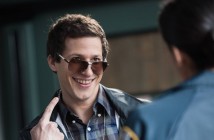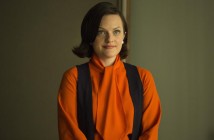Better Call Saul, Season 1, Episode 1, “Uno”
February 8, 2015, 10:00 p.m. (EST), AMC
There are two major forms of tragedy. In one, all of the sorrow is caused by the tragic flaw of the central character, some weakness that they give into, leading to disaster. In the other, the sorrow is unavoidable; the events that unfold do so because they are fated to happen, and no amount of negotiation, compromise, or ingenuity can prevent them from occurring. There is some bleed between the two, but in their basic form, these are the two tragedies: one in which man is felled by forces beyond his control, and one in which man is felled by himself.
In its opening sequence, Better Call Saul seems to imply that its views on the tragedy of Jimmy McGill fall more into the camp of fate. This will all happen because it must happen. This is all pre-determined. It doesn’t matter what Jimmy does. It doesn’t matter how valiantly he strives, nor how boldly he cuts corners. It doesn’t matter if he is slimy and slippery or straightforward and good. Jimmy McGill will become Saul Goodman, and Saul Goodman will become whatever he calls himself as he manages that Cinnabon in Nebraska, living his life in fear and looking back, with a worn VHS, on his glory days as one of Albuquerque’s premiere shopping mall defense attorneys. There’s no way around it. This has always happened. It will always happen. This is the path Jimmy McGill is consigned to walk.
But if Jimmy is just a rat in a maze, with a clear end point already planned out for him, he still has to choose each and every step forward. The cheese is temptation, but Jimmy must still be tempted. All of this has to happen, but it couldn’t happen without everything Jimmy chooses to do, tonight and in the weeks (and seasons?) ahead. There’s the bleed I spoke of earlier. I doubt that Better Call Saul will always look upon the fate of Jimmy as fore-ordained, though I for one think there might be some great meta-textual drama to be wrought from that. Though that opening sequence speaks to the inevitability of his fate, the rest of “Uno” is a more measured character piece, less interested in where we are headed than in where we are now. The show doesn’t really have a premise, at least not in its pilot. It has a character, and the situation in which he finds himself.
That differentiates it from the pilot of its predecessor Breaking Bad (I made it as far as I could without name-dropping that titan of modern television from which this show is born), which delivered its premise nearly immediately in its opening hour. The cold open of Better Call Saul is mournful and reserved where Breaking Bad’s was frenetic and full of tension. And the episode of Better Call Saul that follows plays out like the first third of the Breaking Bad pilot, the portion before Walt decided to begin cooking meth, stretched to an hour. “Uno” is a story less of incident than of import. It isn’t as interested in pulling you in, because it seems to presume it already has you (and for fans of Breaking Bad, that is almost certainly true). Instead, it just shows you the life of Jimmy McGill, a low-rent, sad sack defense attorney who is near-broke, living paltry Public Defender stipend paycheck to paycheck while trying desperately to cheat his way ahead any way he can.
The episode shows him jump from scheme to scheme, and watches as all of them fail to coalesce. Jimmy can’t manage to get ahead, no matter what he does. He loses his case (which he is paid only $700 for), cannot manage to snag a potential client, fails to fleece his sick brother’s law partner out of his brother’s share, and watches as a slip-and-fall scheme spins completely out of his control. These are not points in a plot so much as a series of unfortunate incidents that add up to more than the sum of their parts. Things are not great in the life of Jimmy McGill. So much so that he needs to go back to the courthouse for another sticker to avoid paying $3 to a surly parking attendant who I am sure we will never see or hear from again.
That little moment, where the future infringes on the present, could have been too much, and its ilk might sink this show before it learns to stand on its own (the weight of the future has caused a lot of problems for another prominent prequel this season, Gotham, which spends so much time nudging us about which villain any given person will grow up to be, it barely remembers to be a TV show). While Mike’s cameo felt appropriate, given the role we know he will play on this show, the appearance of Tuco at episode’s end already had me worried about the level of retread Better Call Saul intends to engage in.
Does Jimmy McGill arrive on Tuco’s doorstep as a result of his series of choices in this episode, or because he could never end up anywhere else? Is this a step in his own devolution from Jimmy McGill to Saul Goodman, or just another piece of fate’s puzzle snapping into place? Do Jimmy’s choices matter? Are they choices at all, or merely the illusion of same? These are not just questions for Better Call Saul to grapple with, but challenges for its creators themselves to deal with. After “Uno,” I am very excited to see what answers they come up with.
The Roundup
- “These three young men, near honor students all…”
- “Use only flowers that look expensive. But, you know, aren’t.”
- “Money is not beside the point. Money is the point.”
- “Chuck, whose side are you on?” “There are no sides. But Jimmy, wouldn’t you rather build your own identity? Why ride on someone else’s coat tails?”
“Uno” is a more measured character piece, less interested in where we are headed than in where we are now.
-
GOOD




